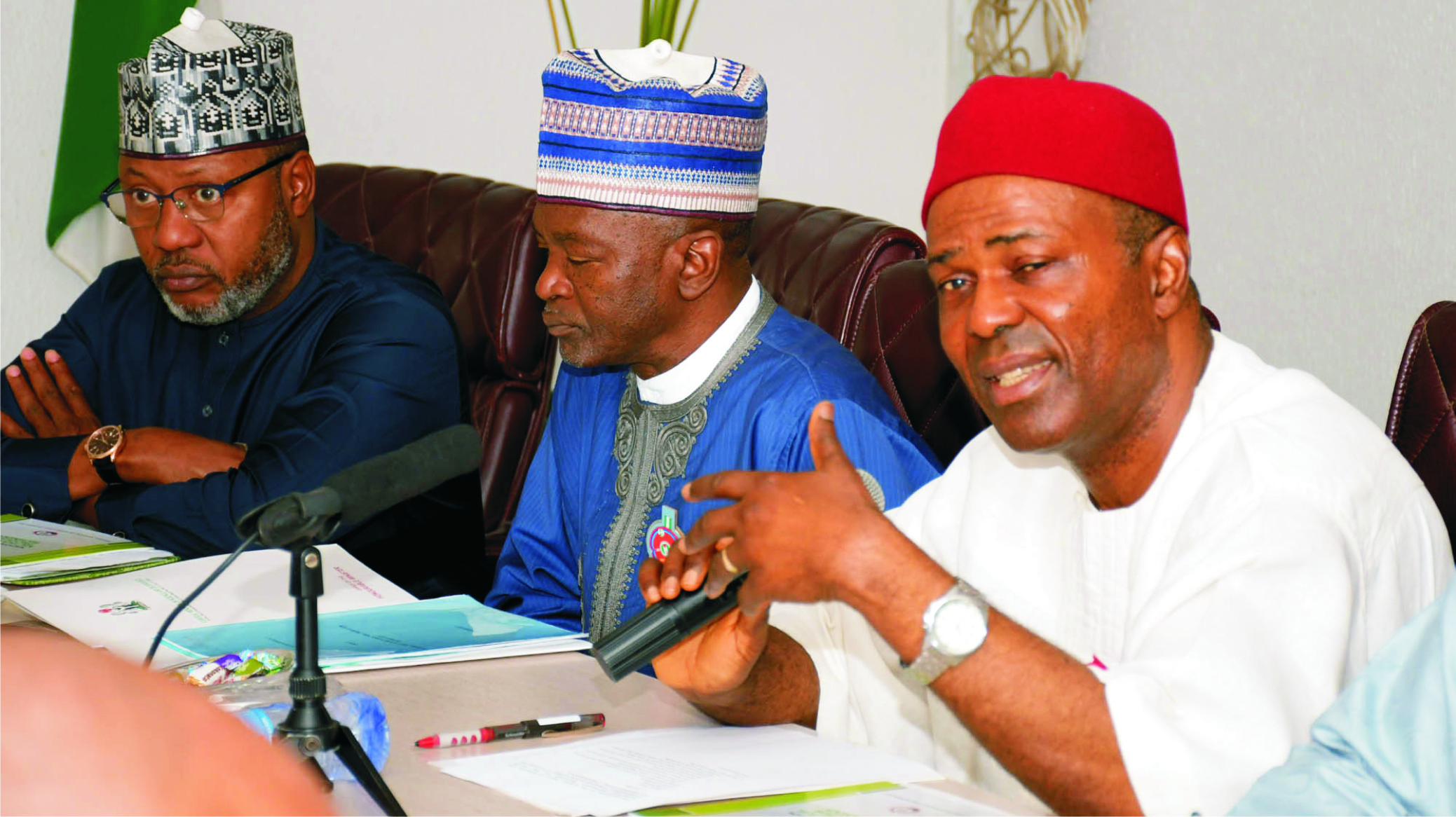Business
Implementation Of 7.5% VAT Begins, Feb 1

The Federal Government will from February 1 begin the implementation of 7.5 per cent Value Added Tax espoused by the finance law.
The law, according to the government will take effect after all the necessary administrative procedures must have been completed, especially the gazette of the Act by the Federal Ministry of Justice.
The Minister of Finance, Mrs Zainab Ahmed, confirmed the development in Abuja at the inauguration of the board of the Federal Inland Revenue Service, last Thursday.
She said the February 1 commencement date had put to rest every speculation regarding the take-off date of the new VAT regime.
The minister said once a bill is signed into law, it takes effect immediately, but noted that there were certain administrative procedures and formalities to be finalised before commencement.
The VAT increase which is meant to help government achieve its revenue projections for the 2020 budget is a part of the tax reforms included in the 2019 Finance Act.
She said with the Act, there would be more revenue to finance key government projects especially in the areas of health, education and critical infrastructure.
She said, “The implementation of the Value Added Tax is to take effect from February 1, 2020, after all the necessary administrative procedures have been completed, especially the gazette of the Act by the Federal Ministry of Justice.”
The minister’s remark however, contradicts an earlier claim by the Accountant General of the Federation, Ahmed Idris, who said the new VAT increment took effect from January 13 when the 2020 Finance Act was signed.
The minister told the members of the FIRS board that the responsibility bestowed on them was critical to the smooth operation of the various tiers and arms of government in Nigeria and, by implication, the well-being of the Nigerian people.
The newly appointed Executive Chairman of the FIRS, Mr Muhammad Nami, vowed to reposition the service for improved performance.
Nami said he would implement policies that would ensure maximum increase in tax revenue.
He said as tax administrators and custodians of the Nigerian tax system, the FIRS had a responsibility to implement all tax policies and laws in a manner that would ensure optimal benefits to the nation.
In achieving these objectives, he said his agenda to reposition the FIRS for better service to taxpayers would be anchored on four cardinal pillars.
These include rebuilding FIRS’ institutional framework by strengthening the capacity of departments and units to deliver on their mandates and robust collaboration with stakeholders to eliminate critical bottlenecks in the tax system.
Others are to build the FIRS into an institution that supports Nigeria’s longing to become an investment destination and to make the FIRS an agency in which its people, processes and technologies are all geared towards a clear goal.
In order to achieve these agenda, he said within the next three months, a lot of initiatives would be implemented.
Business
WEF: We Have Over a Billion Barrels of Oil Reserves … Tinubu
Business
NNPC Plans Mini NLNG Projects For Outside Pipeline Network Customers
Business
NEITI Seeks Speedy Completion Of Refineries’ Rehabilitation
-
Business21 hours ago
Nigeria Wants Higher Quota From OPEC
-
Business21 hours ago
WEF: We Have Over a Billion Barrels of Oil Reserves … Tinubu
-
Nation24 hours ago
Soldiers Destroy 13 Illegal Refineries, Arrest 15 Oil Thieves
-
Rivers21 hours ago
RSG Partners Coy To Train 10,000 Rivers Youths In Skill
-

 Editorial20 hours ago
Editorial20 hours agoHurray, Siminalayi Fubara Is 50!
-
Column23 hours ago
Nuclear Stocks Soar on Stargate AI Infrastructure Announcement
-
Rivers21 hours ago
Group Decries Claim Over Bukuma Royal Stool
-

 News20 hours ago
News20 hours agoWe’ll Make Fire Service Functional After 12 Yrs, Fubara Assures …Inspects Rehabilitation Works On Three Stations

